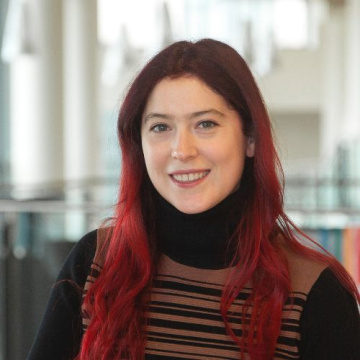
Suzanne Freeman
Biography
Suzanne is a PhD candidate in MIT’s Political Science Department and a predoctoral research fellow at George Washington University’s Institute for Security and Conflict Studies. She researches civil-intelligence relations, civil-military relations, nuclear issues, and grand strategy and utilizes archival research, structured interviews, and wargaming. Her dissertation project examines the strategies that authoritarian intelligence agencies employ to intervene in their own state’s foreign policy decision-making process about the use of force, specifically in Russia and the former Soviet space.
Suzanne’s research lies at the intersection of international security and comparative politics. She studies authoritarian intelligence agencies, military institutions, and their role in domestic and foreign policy, focusing on Russia and other Soviet successor states. Her research advances the understanding of bureaucratic and organizational politics, authoritarian regime stability, civil-intelligence relations, the causes of war, and nuclear policy. Her research agenda also looks at the policy role of coercive institutions from different perspectives by examining the reform of post-Communist intelligence agencies, intelligence agencies as a tool of authoritarian control, Soviet nuclear counterproliferation policy, and the Russian military’s power projection capability. Additionally, she researches wargaming and teaching, as well as experimental wargaming.
She has published peer-reviewed research in PS: Political Science & Politics and has written for Politico, War on the Rocks, MIT Precis, CSIS, and the Medium International Affairs blog. The Smith Richardson Foundation’s World Politics and Statecraft Fellowship, MIT Center for International Studies’ Jeanne Guillermin Prize, and Columbia University’s Carnegie/Harriman Research Grant for Ph.D. Students in Social Science have supported her scholarship.
Before her PhD studies, Suzanne worked at the U.S. Naval War College’s Russia Maritime Studies Institute, where she researched Russian military strategy and doctrine. She received a bachelor’s degree in Slavic Studies from Columbia University and a master’s degree in International Affairs from Columbia University’s School of International and Public Affairs.
Biography
Suzanne is a PhD candidate in MIT’s Political Science Department and a predoctoral research fellow at George Washington University’s Institute for Security and Conflict Studies. She researches civil-intelligence relations, civil-military relations, nuclear issues, and grand strategy and utilizes archival research, structured interviews, and wargaming. Her dissertation project examines the strategies that authoritarian intelligence agencies employ to intervene in their own state’s foreign policy decision-making process about the use of force, specifically in Russia and the former Soviet space.
Suzanne’s research lies at the intersection of international security and comparative politics. She studies authoritarian intelligence agencies, military institutions, and their role in domestic and foreign policy, focusing on Russia and other Soviet successor states. Her research advances the understanding of bureaucratic and organizational politics, authoritarian regime stability, civil-intelligence relations, the causes of war, and nuclear policy. Her research agenda also looks at the policy role of coercive institutions from different perspectives by examining the reform of post-Communist intelligence agencies, intelligence agencies as a tool of authoritarian control, Soviet nuclear counterproliferation policy, and the Russian military’s power projection capability. Additionally, she researches wargaming and teaching, as well as experimental wargaming.
She has published peer-reviewed research in PS: Political Science & Politics and has written for Politico, War on the Rocks, MIT Precis, CSIS, and the Medium International Affairs blog. The Smith Richardson Foundation’s World Politics and Statecraft Fellowship, MIT Center for International Studies’ Jeanne Guillermin Prize, and Columbia University’s Carnegie/Harriman Research Grant for Ph.D. Students in Social Science have supported her scholarship.
Before her PhD studies, Suzanne worked at the U.S. Naval War College’s Russia Maritime Studies Institute, where she researched Russian military strategy and doctrine. She received a bachelor’s degree in Slavic Studies from Columbia University and a master’s degree in International Affairs from Columbia University’s School of International and Public Affairs.